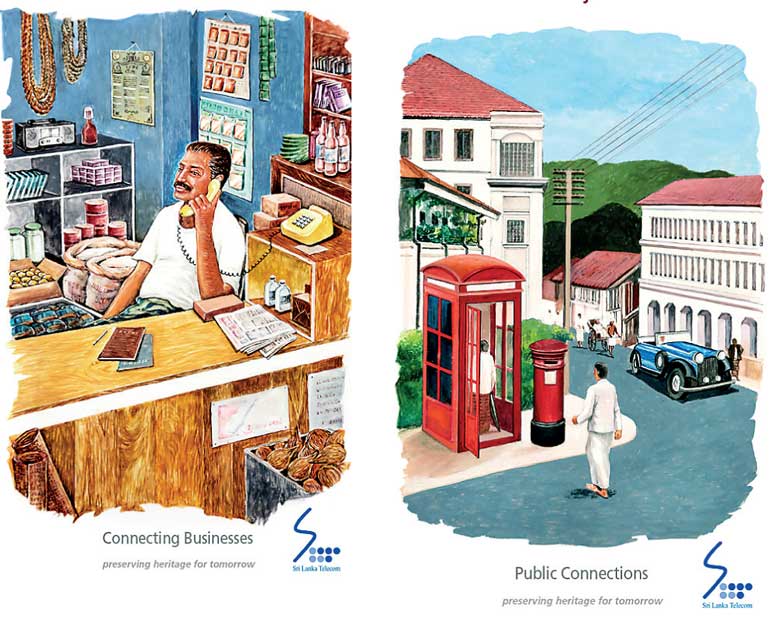Sunday Feb 22, 2026
Sunday Feb 22, 2026
Tuesday, 26 December 2017 00:00 - - {{hitsCtrl.values.hits}}

Sri Lanka Telecom (SLT), the country’s leading telecommunication provider announces the much awaited launch of its calendar for the upcoming year. Continuing its reputation as one of the most coveted corporate collectables in Sri Lanka, the SLT launched its 2018 calendar under the theme ‘Connected Lifestyle of Sri Lanka’.
Since 2003, the SLT is at the forefront of producing calendars and complimentary items that provide a gamut of rich content on culture, biological diversity and heritage of Sri Lanka. The SLT calendar has also become an important and most valued item amongst collectors due to its unique artistic value and creativity. Each year, SLT produces these calendars under the main theme ‘Preserving Heritage for Tomorrow’, with sub-themes. These themes are selected after much research and study into the subject areas and calendars are produced with the help of key resource persons in the related fields that ensure credibility of the information provided by these calendars.
The main aim of this year’s calendar and complimentary items is to raise awareness among the general public on the contribution and role of telecommunication services in developing the nation, its economy and connecting lifestyles over the last 160 years. The calendar showcases the evolution of the telecommunication service in Sri Lanka with the phone units used over the last 160 years (1857–2017) and various applications of the telephone service in day to day life and in the industry.
In 1858, the first electrical telegraph circuit was established in then Ceylon between Galle and Colombo which eventually enabled people to connect with each other. The very first telephone lines were installed by the Oriental Telephone Company in 1881 and with growing interest, in 1896, the Government of Ceylon purchased the company along with its 56 subscribers and it was assigned under the Department of Post and Telegraph.
The early history of thriving coffee and vast tea plantations would not have been a reality without telecommunication services that not only served the interests of colonial administrators, traders and merchants but also proved of significant value to the establishment of railways and the systematic connecting of state offices; helping to improve the efficiency of public services. In 1980, with the onset of an open economy, the Department of Post and Telecommunication was split into two distinct functions in order to underline the critical importance of recognising and developing telecommunication infrastructure.
The establishment of Sri Lanka Telecom as a public corporation in 1991 and its privatisation in 1996 provided it the opportunity to offer all subscribers the best of quality, service and technology.
SLT calendar 2018was prepared with the valuable contribution of veterans in the field including Prof. Saman Chandra Ranasinghe, Department of Languages and Cultural Studies, Faculty of Humanities and Social Sciences, University of Sri Jayewardenepura, Dr. Praneeth Abeysundara, Senior lecturer, Department of Anthropology, Faculty of Humanities and Social Sciences, University of Sri Jayewardenepura, Raveendra Withanachchi, Demonstrator, Faculty of Graduate studies, University of Sri Jayewardenepura, Eng. Lakshman Balasuriya, Rtd. Deputy Chief Officer, Sri Lanka Telecom and artists Pulasthi Ediriweera, Prasadani Kumari, Gamini Abeykoon and Aruna K. Gamage.